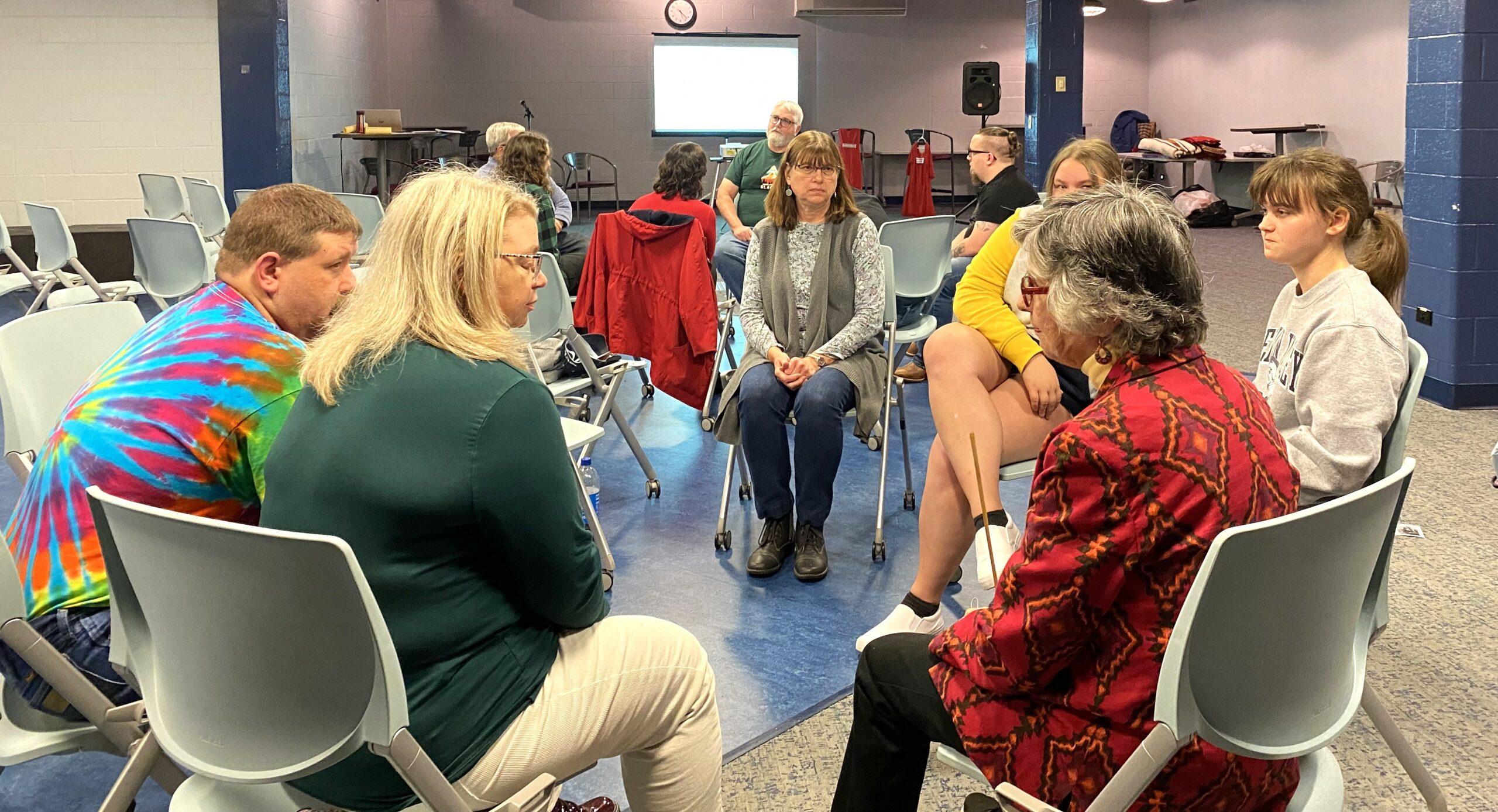 Loss of Turtle Island exercise participants at Lebanon Valley College share their impacted thoughts and feelings in Talking Circles. --Verna Colliver photo
Loss of Turtle Island exercise participants at Lebanon Valley College share their impacted thoughts and feelings in Talking Circles. --Verna Colliver photo
During National Native American Heritage Month in November, students and faculty at Lebanon Valley College (LVC), in Annville, PA, participated in a unique, interactive learning experience that taught them the history of a tragic loss. That loss resulted from “the relationship between European settlers and the Indigenous nations inhabiting the land we now call the United States of America.”
Six members of the Eastern PA Conference Committee on Native American Ministries (CoNAM) introduced to LVC’s campus November 4 “The Loss of Turtle Island,” which refers to the taking of land belonging to Indigenous peoples. The Office of Spiritual Life and Office of Diversity, Equity, Inclusion & Belonging cohosted the event for a gathering that was deeply impacted, although small in number due to the bustling campus’ other activities that day, including Parents’ Day and a football game.

While CoNAM has presented the Loss of Turtle Island exercise before (Read “Witnesses feel painful ‘Loss of Turtle Island”), it was their first time since before the Covid pandemic began in 2020.
Members Mike and Paula Shifflet, Sandi Cianciulli, Sherry Wack, the Rev. Bob Coombe and Verna Colliver were excited to share with students this experience evoking the tragic history suffered by the Indigenous peoples of North America. And they have been invited to present it again to a larger audience there in February 2024, while they hope to introduce it to more people in more places.
The Rev. Andrea Haldeman, LVC’s chaplain and an EPA clergy member, invited CoNAM to help her share The Loss of Turtle Island experience after she learned about it in a CoNAM workshop at the Tools for Ministry church leadership training hosted by the West District in February. She was eager to invite students to learn a history most of them were not aware of, in a way that would have the greatest impact.
Learning a largely unknown American history
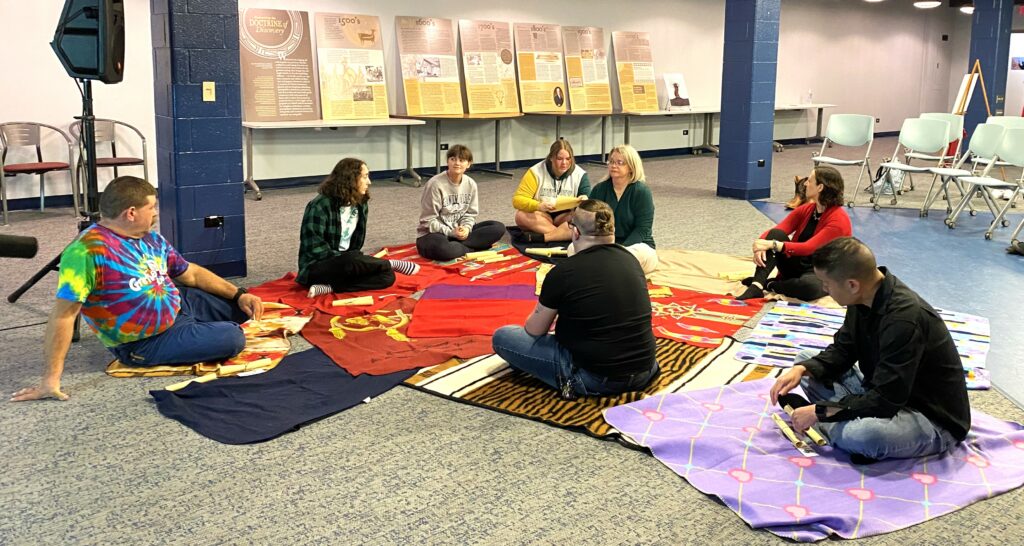
That impact emerged from the striking visual and emotional experience of being removed one by one from a patchwork of colorful blankets where they sat, in witness of Native peoples who have suffered loss of land, colonization, broken treaties, forced removal, assimilation and extermination. Silently they listened as the CoNAM facilitators and others recounted this largely unknown American history and the infamous Doctrine of Discovery that undergirded it.
As facilitators removed them from the blankets, the abrupt action symbolized the taking of land—parts of Turtle Island—from its original inhabitants and the removal of those inhabitants from lands that had long sheltered, nurtured and fed them.
CoNAM also displayed a series of large panels, borrowed from the Coalition for Dismantling the Doctrine of Discovery, that displayed the 500-year timeline of the policy the Catholic Church initiated in the 15th century, which eventually became the basis of international law and Indian land laws in the United States.
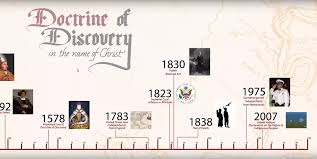
CONAM’S goal is to introduce more people to the now repudiated Doctrine of Discovery, which was used to legalize genocide, oppression, theft of resources and slavery of Indigenous peoples through global colonialism. Its effects continue to harm many of those peoples today.
Students, faculty and their spouses were fully involved in the presentation. At the end, a lone participant remained, indicating the diminishment of the Indigenous population which had been living on the land for thousands of years before contact with European settlers.
Then they talked about the shared experience, as each participant was invited to express their feelings and what they learned. They spoke in turn, as a traditional talking stick was passed from one speaker to another. A faculty member raised a fist and said, “I will fight until I die,” indicating her desire to actively resist the tendency to bury the Doctrine of Discovery’s tragic history and its on-going impact on Native Americans today.
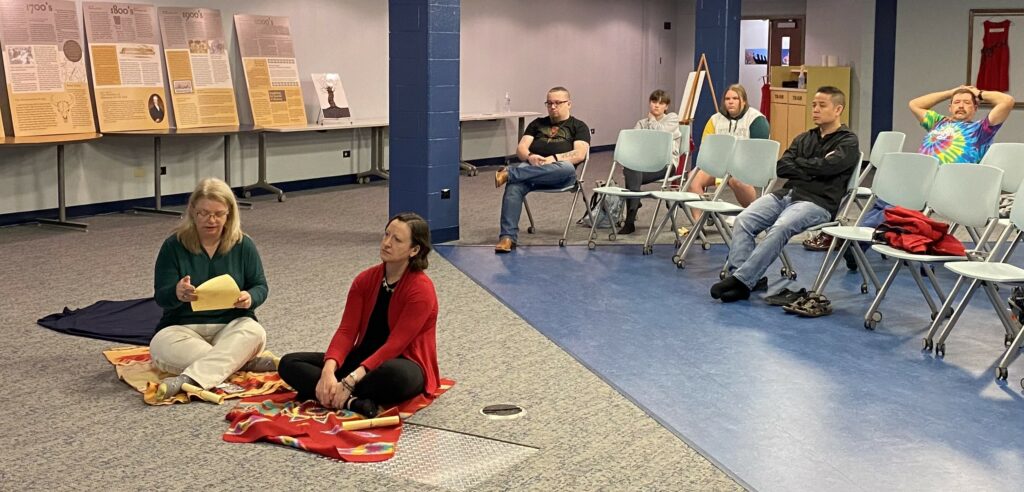
Participants shared a wide range of emotions, reflecting on the impact they felt personally. It raised feelings of anger in some but was humbling for those who saw the people and blankets disappearing and felt deeply the loss of things—and people—of value.
“Everything was new to me,” acknowledged one first-year student, speaking softly. “I knew nothing of this from Kindergarten to Grade 12.” In response to comments about Indigenous place names, she did a quick Google search for Lake Wallenpaupack, located near her home, and discovered that the name comes from a Lenape word meaning, “stream of swift and slow water.”
‘We were involved in the experience’
“We were involved in the experience,” commented another student, who was invited to read the first scroll of information at the start of the presentation, “and it was better than a college lecture.”
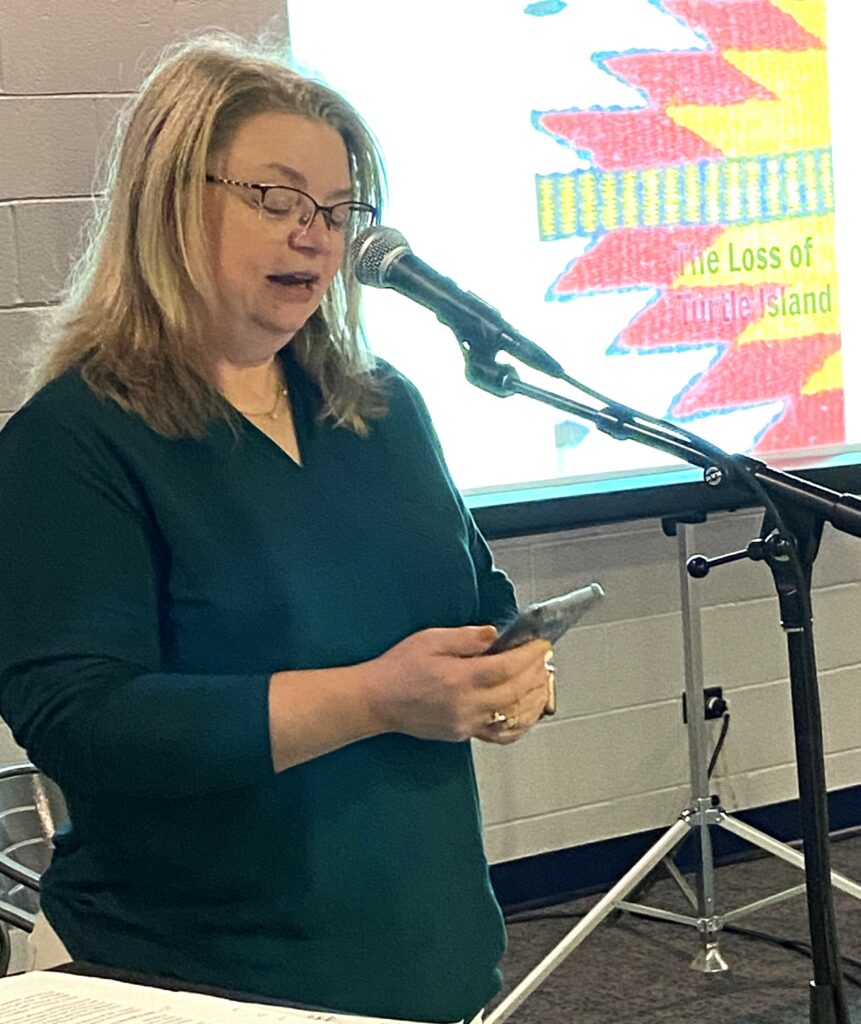
Chaplain Haldeman expressed her appreciation to CoNAM. “As students later reflected on their experience, they found it extremely informative and engaging, as well as emotionally evocative and thought inducing,” she said. “Some things they had not considered before were the many treaties and laws passed to deceive and subjugate Indigenous peoples and the impact that it has even today. Also, how quickly their lands were appropriated, and how little remains with them.”
Another understanding they took from this memorable event, she added, “was that even though we all look different, we all bleed the same blood. And despite all their adversity, Indigenous peoples continue to exemplify resiliency.” Haldeman has since joined CoNAM as a new member.
Working together to engage and interact with the participants was also fulfilling for CoNAM, whose mission is to raise awareness of the tragic history of colonialism and to be a source of support and encouragement for Native Americans. They hope such events will inspire others to join their group, as CoNAM always welcomes new members.
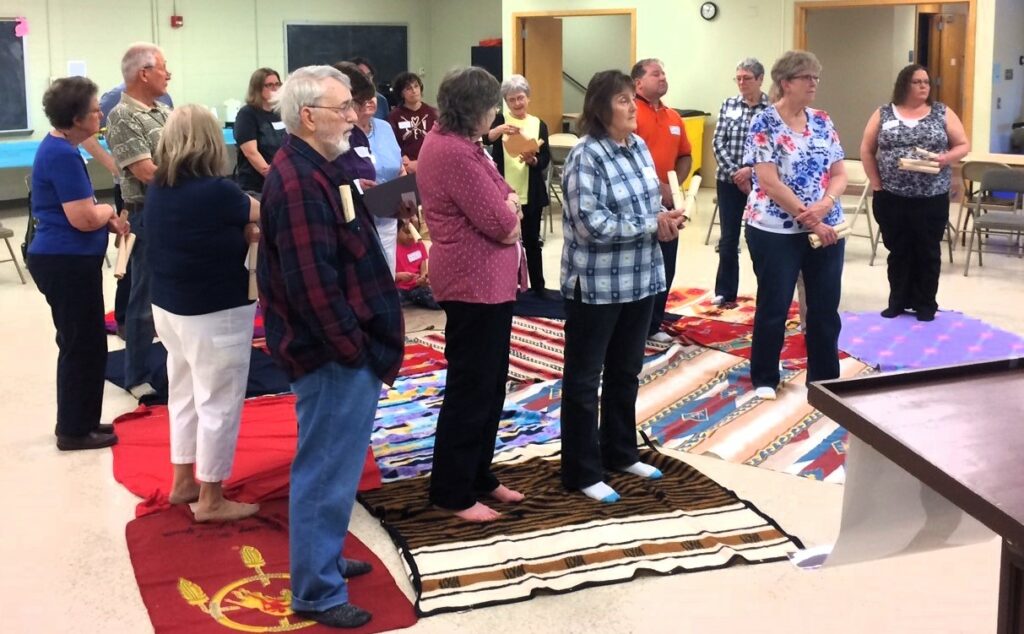
Learn more about CoNAM and download their brochure by visiting the Native American Ministries page on EPA’s website.
*Verna Colliver is secretary of the Eastern PA Conference Committee on Native American Ministries.
